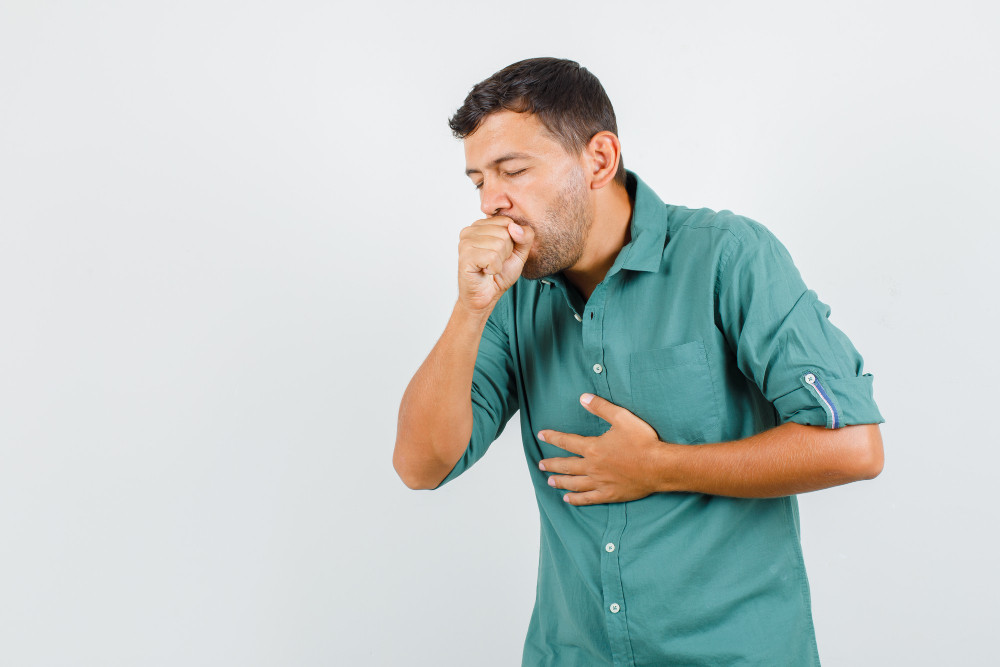Coughing is one of the side effects of smoking. However, it is important to note that smokers have a different kind of cough that differs from coughs resulting from allergies or viral infections. Smokers often develop a persistent cough, referred to as smoker's cough, which can persist for a prolonged period and lead to further health concerns.
What is a smoker's cough?
Smoking cigarettes exposes smokers to a number of dangerous substances that can be harmful to their health. It is possible for these substances to get stuck in your throat and lungs, which will result in coughing.
The cilia, which are small, fiber-like protrusions on the walls of the bronchioles, are at risk of exposure to toxic substances when people smoke. Your body will cough as a defense mechanism against foreign and hazardous substances in order to eliminate these chemicals from the airways.
A common problem for smokers is smoker's cough, but not all smokers will definitely get smoker's cough. Most of the time, this cough starts in the morning because the cilia can only remove toxins after you have not smoked for a few hours. Therefore, you can find yourself coughing upon awakening.
Symptoms of a smoker's cough
The symptoms of a cough due to allergies or a virus are different from those of a smoker's cough. A dry cough is characteristic of an early stage smoker's cough. When a smoker's cough progresses to an advanced stage, it may produce several kinds of mucus, including clear mucus, mucus mixed with blood, and mucus that is greenish yellow and white.
Furthermore, a smoker's cough might also manifest as:
- Extremely persistent coughing that lasts more than two or three weeks
- Exhales sound that sounds like wheezing or cracking
- Phlegm or mucus
- Smoker's coughs tend to be particularly strong when you get up, but they gradually become less severe throughout the day
Smokers' cough symptoms worsen over time unless they quit smoking.
In addition to wheezing and sputum, the crackling sound that comes from a smoker's cough is different from that of an ordinary cough. However, this cough might be hard to differentiate from lung diseases such as lung cancer and COPD.
See a doctor if you have a cough that looks and feels like a smoker's cough and doesn't go away after you quit smoking.
Management of smoker's cough
Quitting smoking is the best remedy for a smoker's cough. You can take medication or try some home remedies to help with a smoker's cough. Here are a few methods for relieving a smoker's cough:
- Stay hydrated by drinking at least 8 glasses of water per day to prevent dehydration and thin secretions in the respiratory tract
- Gargle warm salt water
- Drink honey or other warm drinks and foods
- Consume lozenges to relieve breathing
- Inhale mint or eucalyptus leaves
- Using a humidifier
- Regular exercise of at least 150 minutes per week
- Eat healthy food with balanced nutrition
- Sleeping with your head elevated helps your breathing.
Complications of smoker's cough
A smoker's cough can result in a number of complications, depending on the severity of the cough, the frequency of smoking, and the presence of other conditions that can exacerbate the cough. The following are potential complications of a smoker's cough:
- Throat injury
- Hoarseness
- Respiratory tract irritation and itching
- Chronic cough
- Progressive infection
Chemicals accumulate in the respiratory system and lungs of smokers over time. Complications including pneumonia, bronchitis, emphysema, and lung cancer might develop as a result of this.
Smoking is associated with a number of health problems. If you are experiencing challenges in ceasing the habit of smoking, you can visit a doctor, a pshycologist, or make use of the consultation features that are available in the Ai Care application by downloading the Ai Care application from the App Store or Play Store.
Looking for more information about other diseases? Click here!
- dr. Alvidiani Agustina Damanik
Eldridge, L. (2022). What Is Smoker’s Cough?. Available from: https://www.verywellhealth.com/smokers-cough-symptoms-and-causes-2248937
Leonard, J. (2023). Everything you need to know about smoker's cough. Available from: https://www.medicalnewstoday.com/articles/318931
Jewell, T. (2023). Smoker's Cough: Everything You Need to Know. Available from: https://www.healthline.com/health/smokers-cough











